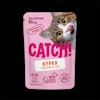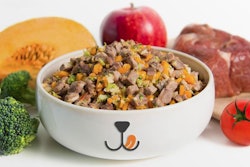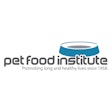
Modified from a press release:
By January 11, more than 70 pets had died after eating Sportmix pet foods, according to reports submitted to the U.S. Food and Drug Administration (FDA). On that date, the product’s maker Midwestern Pet Foods expanded the recall for excess levels of aflatoxin to include all products meeting these three criteria:
- contain corn
- manufactured in Oklahoma
- expiration date on or before July 9, 2022
The recall of Sportmix High Energy dog food expanded to more than 1,000 lots. Midwestern Pet Foods initially recalled the product after tests indicated excessive levels of aflatoxin. Laboratory analysis and veterinary records reviews haven’t confirmed that all the pets died of aflatoxin poisoning. The FDA count is approximate and may not reflect the total number of pets affected. Midwestern Pet Foods is based in Evansville, Indiana, USA.
Sportmix High Energy dog food recall lists
The list of recalled dry pet food products announced by Midwestern Pet Foods, Inc. on December 30, 2020 is:
- Sportmix Energy Plus, 50 lb. bag
- Exp 03/02/22/05/L2
- Exp 03/02/22/05/L3
- Exp 03/03/22/05/L2
- Sportmix Energy Plus, 44 lb. bag
- Exp 03/02/22/05/L3
- Sportmix Premium High Energy, 50 lb. bag
- Exp 03/03/22/05/L3
- Sportmix Premium High Energy, 44 lb. bag
- Exp 03/03/22/05/L3
- Sportmix Original Cat, 31 lb. bag
- Exp 03/03/22/05/L3
- Sportmix Original Cat, 15 lb. bag
- Exp 03/03/22/05/L2
- Exp 03/03/22/05/L3
On January 11, 2021, Midwestern Pet Foods, Inc. expanded the recall to include all pet food products containing corn that were made in the firm’s Oklahoma plant and that expire on or before July 9, 2022. More than 1,000 lot codes are affected so they are not listed individually.
Lots of the following pet food products have been recalled if the date/lot code includes an expiration date on or before “07/09/22” and includes “05” in the date/lot code, which identifies products made in the Oklahoma plant:
- Pro Pac Adult Mini Chunk, 40 lb. bag
- Pro Pac Performance Puppy, 40 lb. bag
- Splash Fat Cat 32%, 50 lb. bag
- Nunn Better Maintenance, 50 lb. bag
- Sportmix Original Cat, 15 lb. bag
- Sportmix Original Cat, 31 lb. bag
- Sportmix Maintenance, 44 lb. bag
- Sportmix Maintenance, 50 lb. bag
- Sportmix High Protein, 50 lb. bag
- Sportmix Energy Plus, 44 lb. bag
- Sportmix Energy Plus, 50 lb. bag
- Sportmix Stamina, 44 lb. bag
- Sportmix Stamina, 50 lb. bag
- Sportmix Bite Size, 40 lb. bag
- Sportmix Bite Size, 44 lb. bag
- Sportmix High Energy, 44 lb. bag
- Sportmix High Energy, 50 lb. bag
- Sportmix Premium Puppy, 16.5 lb. bag
- Sportmix Premium Puppy, 33 lb. bag
Lot code information may be found on the back of bag and will appear in a three-line code, with the top line in format “EXP 03/03/22/05/L#/B###/HH:MM”
FDA investigation into recalled pet foods
On December 30, 2020, Midwestern Pet Foods, Inc. announced a recall of certain lots of Sportmix pet food products after FDA was alerted about reports of at least 28 dogs that died and eight that were ill after consuming the recalled Sportmix pet food. Multiple product samples were tested by the Missouri Department of Agriculture and found to contain very high levels of aflatoxins. Aflatoxins are toxins produced by the mold Aspergillus flavus and, at high levels, can cause illness and death in pets. The toxins can be present even if there is no visible mold.
On January 11, 2021, Midwestern Pet Foods, Inc. expanded the recall to include all pet foods containing corn and manufactured in the company’s Oklahoma plant, and having an expiration date on or before July 9, 2022. As of January 11, FDA has been made aware of more than 70 dogs that have died and more than 80 that are sick after eating Sportmix pet food. Not all of these cases have been officially confirmed as aflatoxin poisoning through laboratory testing or veterinary record review. This count is approximate and may not reflect the total number of pets affected. Reports submitted only to the pet food manufacturer are not shared with FDA and are not a part of this count. FDA continues to work with veterinarians and state partners to follow up on suspected cases of aflatoxin poisoning.
FDA issued an advisory to notify the public about the potentially fatal levels of aflatoxins in Midwestern pet food products that may still be on store shelves, online, or in pet owners’ homes.
FDA is conducting follow-up activities at the manufacturing facility.
Aflatoxin and other mycotoxin risks in pet food
From previous Petfood Industry coverage: Measuring up mycotoxin risks in petfood
The companion animal diet presents a unique and well-documented set of risks to our beloved best friends. Mycotoxins are secondary metabolites synthesized by fungal molds as signature chemicals and "calling cards" deposited into cereals and other crop commodities. A relatively narrow range of fungi produces hundreds of mycotoxins, each with its own unique chemistry and corresponding impact on animal physiology and health.
Mycotoxins are highly stable and resistant to extreme physical conditions including ultra-high temperatures and rapid drying regimes used in commodity processing and the manufacture of petfood. The toxic effects of mycotoxins include: nephrotoxicity, hepatotoxicity, estrogenic imbalance, reproductive disorders, immunosuppression, genotoxicity and carcinogenicity.
Identifying mycotoxin-producing fungi is the relatively easy part, because no more than half a dozen genera are responsible for mycotoxin production-including Aspergillus and Penicillium (blue/green molds), Fusarium and Claviceps. Pinning down the culprit chemicals we call mycotoxins is much less easy. Hundreds of mycotoxins exist, each with its own unique chemistry and signature syndrome for companion animals, livestock and humans.
Researchers continue to obtain data showing the occurrence and impact of mycotoxins that appear in most cereal grain commodities which are common ingredients in dry pet foods. Aflatoxins have received more attention than any other group of mycotoxins, due to their acute toxicity with high mortality, alongside liver damage and carcinogenicity. Aflatoxin is known to cause loss of appetite, listlessness and vomiting in both dogs and cats.
Mycotoxins are intrinsically stealthy in both presence and action. Synergistic effects occur when different mycotoxins occur at the same time in raw materials and manufactured food or feed. The consequence of chemical and biological interaction between two or more mycotoxins invariably outweighs the additive effects of the individual chemicals. The use of one mycotoxin as a marker to flag the probable presence of another is the logical move.
"Masked" mycotoxins mean hidden challenges for petfood manufacturers-even though analysis may signal the all clear. These mycotoxins have been modified by chemical reaction and become bound to various natural ingredients in raw materials such as glycosides, glucuronides, esters of fatty acids and specific proteins. These mycotoxins, while not yet chemically active, may not be picked up during analysis. They may then be released by the natural digestive process of the companion animal that consumes them and suddenly become toxic.
One strategy for mitigating the masked mycotoxin problem is to test as far up the raw materials stream as possible. This means looking closely at harvested grain before it goes into storage or processing and ensuring the correct storage and transit conditions are met from farm to finished product manufacturing.
Once present, mycotoxins are virtually impossible to remove or destroy. Monitoring for prevention and avoidance are key. Mycotoxin management essentially comes down to use of high-efficacy testing technology and equipment.



















